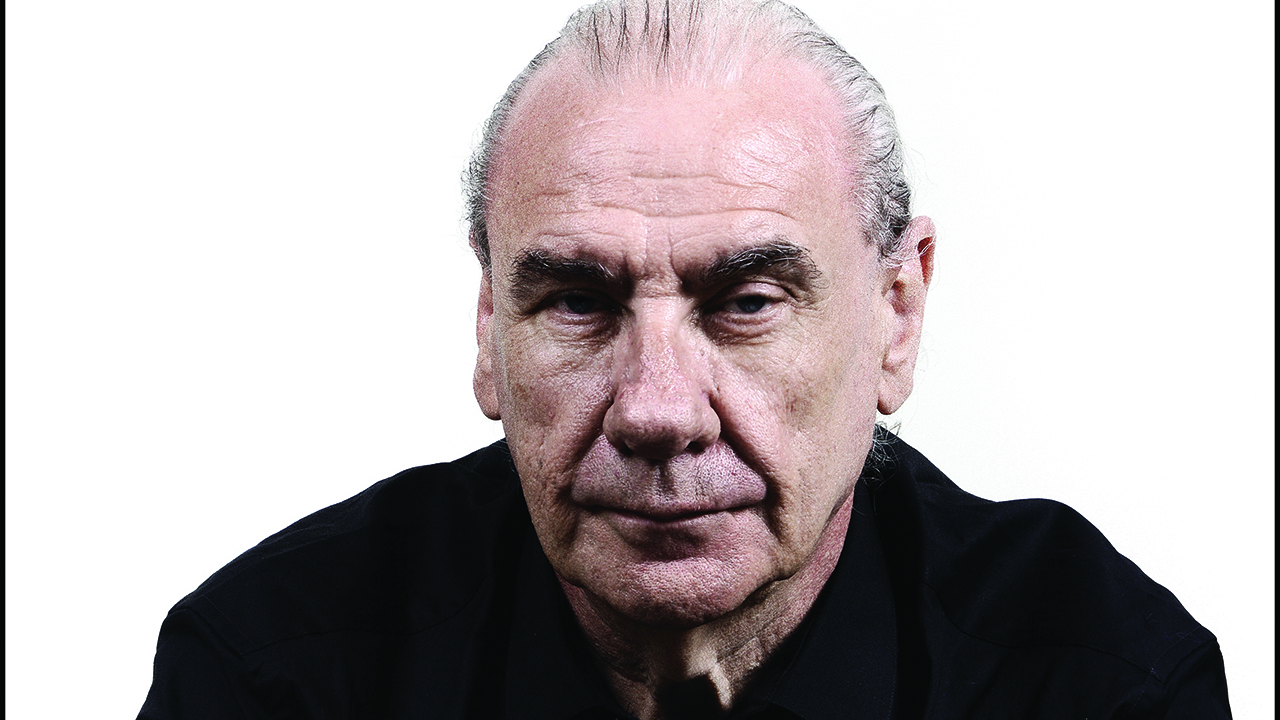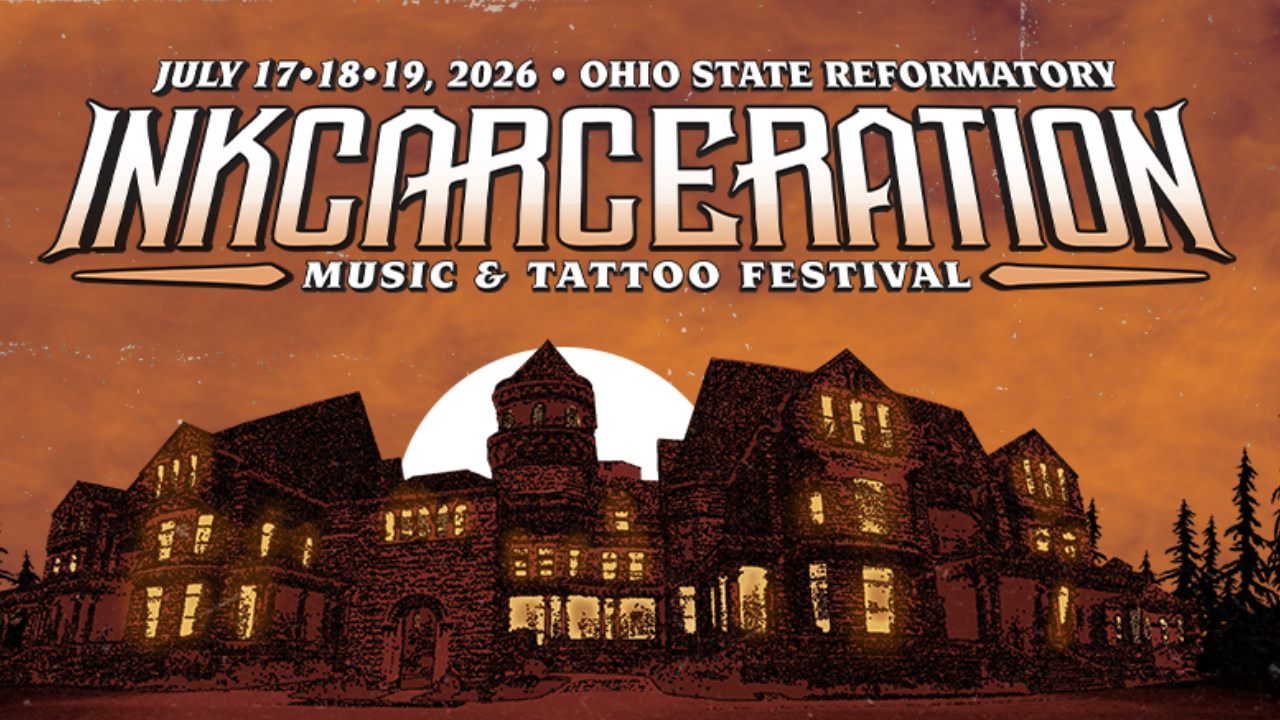Black Sabbath: Bill Ward - The Wayward Son
We made contact with Sabbath’s estranged drummer Bill Ward to look back on a legacy that helped shape heavy music.

Select the newsletters you’d like to receive. Then, add your email to sign up.
You are now subscribed
Your newsletter sign-up was successful
Want to add more newsletters?

Every Friday
Louder
Louder’s weekly newsletter is jam-packed with the team’s personal highlights from the last seven days, including features, breaking news, reviews and tons of juicy exclusives from the world of alternative music.

Every Friday
Classic Rock
The Classic Rock newsletter is an essential read for the discerning rock fan. Every week we bring you the news, reviews and the very best features and interviews from our extensive archive. Written by rock fans for rock fans.

Every Friday
Metal Hammer
For the last four decades Metal Hammer has been the world’s greatest metal magazine. Created by metalheads for metalheads, ‘Hammer takes you behind the scenes, closer to the action, and nearer to the bands that you love the most.

Every Friday
Prog
The Prog newsletter brings you the very best of Prog Magazine and our website, every Friday. We'll deliver you the very latest news from the Prog universe, informative features and archive material from Prog’s impressive vault.
On the wall of Bill Ward’s living room there’s an aluminium cross, one of four handmade for the members of Black Sabbath by Ozzy’s father, Jack, in 1969. It’s a reminder that while the 67-year-old drummer might not be part of the current Sabbath lineup, Sabbath will always be a part of him.
Ward’s absence from the band is still a source of dispute – Sabbath claim the drummer isn’t capable of undertaking a huge world tour, Ward claims he was presented with an ‘unsignable’ contract – but today Ward doesn’t want to dwell on the negatives, but rather celebrate the legacy of what he and his friends Ozzy, Tony and Geezer created. He might not be a part of Sabbath’s swansong, but speaking to Hammer today, Bill Ward’s humility and obvious love for Sabbath is undeniable, and touching.
You stood alongside Tony and Geezer to accept Sabbath’s Ivor Novello Lifetime Achievement Award earlier this year, and your pride in the band’s achievements was very evident…
“Yes, I’m very proud of what we accomplished. Sabbath is a great band, and I love the guys. I think we were genuinely a band that changed music.”
If we go back to the start, Earth became Black Sabbath when the four of you undertook your first European tour in 1969. what do you remember of that time?
“Well, when I look back, I do so with real satisfaction. Even though we were having a hard time in terms of being able to eat, and we were sharing a single room with rats, I can romanticise the whole thing these days. It was four guys really discovering ourselves as musicians and learning to interact with one another, and there were some great moments. We played the famous Star Club in Hamburg, like The Beatles, and then played for six weeks at the Beat Club, Hirschen in Zurich. Our audience was probably 10 or 20 people, but it didn’t stop the spirit of what we were doing.”
Do you remember getting your first copy of the Black Sabbath album?
Sign up below to get the latest from Metal Hammer, plus exclusive special offers, direct to your inbox!
“I do, it was great. When I opened up the inside cover I didn’t expect the inverted cross – none of us did – but I was just completely elated that we’d actually made a record. It felt like we’d finally arrived. It wasn’t a bad record, either. There’s so much energy and musical diversity and intelligence present, and you can hear that everyone is playing from the heart.”
The inverted cross on the album sleeve helped create an image of the band as devil worshippers. Was that alarming to you?
“Yeah, and it was genuinely dangerous at times. It created real chaos, particularly in the Deep South of the US. We got banned from several places, and it created real controversy, and made certain people want to take violent action against us. Looking back, we were quite naïve. Ozzy’s dad Jack made us those crosses out of pure love to protect us, and we wore them for years.”
What are you most proud of when you look back at those years?
“I have incredible memories of the shows that we did – it was full-on righteous energy, and we put everything into them. I’d sit behind my kit feeling so fucking empowered. I love the albums that we did too, though my main memory of recording is pure frustration, because I could never get the drums to sound exactly like they sounded in my head. But I thought we did some marvellous studio sessions, and I can look back on those records and think, ‘This is pretty fucking good.’ I feel like we took hard rock to some new places, and made a big difference in people’s lives.”
With hindsight, do you think Black Sabbath should have ended when Ozzy was fired in 1979?
“Maybe. It never felt the same after Ozzy left, and I mean that with no disrespect to Ronnie [James Dio], who was a beautiful man and an incredible singer. But whatever Sabbath had, the dynamics had now changed, and I just couldn’t feel OK with it. But, in fairness, my alcohol and drug abuse had escalated to where they were the priority in my life, and I was on my way to Hell. It was a fucking terrible time for me. But I missed Ozz, and it was never the same for me.”
When you got back together initially, in 1997, did it feel like a real vindication of Sabbath’s legacy?
“It was marvellous. I loved every second of being with the guys again, and going back into those great songs was a fucking blast. I had the time of my life.”
It must sadden you, then, to not be part of this final outing?
“It does. I wasn’t consulted about it. About two weeks before this final tour was announced we’d contacted one of the band’s representatives and asked if there’d be any interest at all in myself coming back, and the answer came back, ‘No interest’, and that, apparently, was a unanimous decision on their part. I thought, ‘Well, OK, fair enough’, because we’d been through a very rough couple of years. But, with all my heart and soul and with every bit of love that I have, I can only wish them the very best. I hope it’s a great tour.”
Is it the business side of things that’s the big issue for you?
“Yeah, it is. When we got that Ivor Novello award Tony and Geezer and I all went off for a piss together, and we were just laughing and joking as if there were no problems. I don’t want to get into the negative stuff, but yeah, my problem isn’t with the guys.”
How will you want Black Sabbath to be remembered?
“I hope people will recognise us as good musicians, who made some adventurous music, and did some extraordinary things. Sabbath will be missed. But long live Black Sabbath.”
If you got asked to go back for just one gig, would you do it?
“I’ve actually thought about this, and the answer is ‘No.’ Only because I don’t think it’d be fair to the guy in Pittsburgh, or New York, or Sheffield, or Belfast, who wants to see the original lineup. As much as my heart would love to be part of it, it saddens me that it can’t be a reality.”
FOR MORE ON BILL WARD, CHECK OUT HIS OFFICIAL WEBSITE AT WWW.BILLWARD.COM

A music writer since 1993, formerly Editor of Kerrang! and Planet Rock magazine (RIP), Paul Brannigan is a Contributing Editor to Louder. Having previously written books on Lemmy, Dave Grohl (the Sunday Times best-seller This Is A Call) and Metallica (Birth School Metallica Death, co-authored with Ian Winwood), his Eddie Van Halen biography (Eruption in the UK, Unchained in the US) emerged in 2021. He has written for Rolling Stone, Mojo and Q, hung out with Fugazi at Dischord House, flown on Ozzy Osbourne's private jet, played Angus Young's Gibson SG, and interviewed everyone from Aerosmith and Beastie Boys to Young Gods and ZZ Top. Born in the North of Ireland, Brannigan lives in North London and supports The Arsenal.
